#Regulations
Freedom Convoy Update: Truckers Are Winning
The Freedom Convoy that originated in Canada last month has gained an incredible amount of momentum, garnering loads of support from citizens around the world. Sympathetic protests seem to be erupting everywhere while the original group of truckers remains planted on the streets of Ottawa to demand an end to government mandates. But honking at Parliament Hill for two weeks was only a portion of the convoy’s grand strategy.
Large groups of truckers have broken off to create blockades at meaningful border crossings, gaining control of North America’s already ailing supply lines. The most recent example resulted in the taking of the Ambassador Bridge in Detroit, an essential trade crossing for both the United States and Canada. Truckers have held the bridge for five days and automakers have begun announcing shutdowns due to supply issues. Meanwhile, the Canadian government has begun discussing an end to lockdown measures after failing to stop the protests and other nations appear poised to follow in its footsteps.
Canadian Trucker Protests Continue, Aussies Launch 'Convoy to Canberra'
With supply lines being of particular importance these days, truckers are leveraging their role to encourage government to see things their way. Canada’s Freedom Convoy reached Ottawa on Friday to demand officials end pandemic-related restrictions it believes are wreaking havoc on the economy and the protests have yet to stop.
While this all started with U.S. and Canadian truckers urging the government to abandon border restrictions that forced all drivers to be vaccinated and confirmed as COVID free (starting January 15th) or be forced to quarantine for 14 days, activists are now asking Ottawa to abandon all mandates or prepare itself for worsening disruptions to already ailing supply chains. They’ve since been joined by Australian truckers, who have formed the ‘Convoy to Canberra’ for similar reasons. Future demonstrations are also being prepared for the United States.
Stellantis Makes Decision on Vaccine, Truckers Head to Ottawa
Following the U.S. Supreme Court’s decision to block proposed OSHA regulations backed by the Biden administration, it was assumed that automakers would quickly begin weighing in on vaccine rules now that there would be no federal obligation. However, they’ve actually been keeping quiet on the matter, with Stellantis being the first manufacturer to walk back previous requirements.
While the automaker had previously been working up to companywide vaccine mandates, it pushed back its vaccine deadline for early January. This week, Stellantis confirmed that it will be abandoning the scheme entirely after suggesting that the existing compliance rates were sufficient. Though something tells me that executives have become aware of the swelling pushback against COVID restrictions and became concerned with the optics.
Supreme Court Blocks OSHA Workplace Vaccine Mandates
A divided U.S. Supreme Court has blocked the Biden administration’s vaccine-or-test rule that would have been enforced by the Occupational Safety and Health Administration (OSHA) and impacted roughly 1.7 million automotive employees.
“Although Congress has indisputably given OSHA the power to regulate occupational dangers, it has not given that agency the power to regulate public health more broadly,” the court explained. “Requiring the vaccination of 84 million Americans, selected simply because they work for employers with more than 100 employees, certainly falls in the latter category.”
Canada Joins Mexico in Trade Dispute Against United States
Mexican and Canadian officials have been dropping hints that they’re not all that enthusiastic about the United States-Mexico-Canada Agreement (USMCA) since before Enrique Peña Nieto, Donald Trump, and Justin Trudeau all sat down to sign it in 2018. But just getting to that point required months of formal negotiations that rarely looked to be all that productive.
Sadly, things don’t seem to have changed now that the USMCA is in full effect. Last week, Mexico requested a dispute settlement panel under the terms of the trade pact to help resolve disagreements about the surprisingly contentious automotive content stipulations that determine whether or not vehicles and parts will be slapped with tariffs. Under the previous North American Free Trade Agreement (NAFTA), 62.5 percent of the vehicle’s components had to be sourced from member nations to be considered tax-exempt. In an effort to spur localized production, USMCA increased that number to 75 and not everyone is thrilled with the updated content requirements with Mexico claiming it’s not even sure how to apply them. Canada now intends to formally sign onto Mexico’s complaint against the U.S. over their divergent interpretation of rules.
2022 Ford Mustang V8 Will Be Down on Power
Ford will be reducing output for the 2022 Mustang GT and Mach 1 coupe. Both models will have 10 fewer horsepower and 10 fewer pound-feet of torque than the previous model year, with the culprit being emission compliance. Changes reportedly only pertain to the 5.0-liter Coyote V8.
NHTSA Considers Increasing Fines for Emission Violations
The National Highway Traffic Safety Administration is considering increasing penalties for automakers that fail to meet fuel-efficiency requirements. Though this could be considered a restoration of older standards, depending upon your perspective.
Shortly before leaving office, President Donald Trump postponed a regulation from the last days of the Obama administration that would have effectively doubled fines for vehicle manufacturers failing to meet Corporate Average Fuel Economy (CAFE) requirements. Automakers had been complaining that the rule would have dramatically increased operating costs, suggesting that would trickle down to vehicle pricing and give manufacturers selling carbon credits an unfair advantage.
Place Your Bets: German Gigafactory Operational By October?
Tesla Gigafactory has been hit with more red tape than a last-minute Christmas present and is reportedly nearing completion. Elon Musk even suggested the facility could be producing vehicles by the end of October. However, some of the language emanating from his recent 0n-site engagement has us wondering what the odds are on that becoming a reality. The facility has already been delayed on more than one occasion by environmental activists and bureaucratic hang-ups. Though it now appears to be within a few weeks of commencing operations, Tesla’s CEO didn’t sound overly optimistic about the target.
On Friday, Musk met with Armin Laschet — Germany’s leading Conservative candidate to succeed Angela Merkel as chancellor — to tour the grounds of Gigafactory Berlin (technically Gruenheide). Though the main event was Elon’s preceding meeting with local Brandenburg officials that have not yet given final approval on the facility, citing ecological concerns.
EPA Introduces Stricter Vehicle Emission Rules
The Biden administration released updated proposals for the mileage and emission standards to be imposed on passenger vehicles sold inside the United States this week. To the great shock of nobody, they move the country away from the targets established by the Trump administration so the nation can be brought back toward stringent Obama-era goals those later changes sought to get away from.
Though it’s not quite a return to form and environmentalists have already accused the plan of being insufficient — a take that’s as easy to predict as a sunrise. The Environmental Protection Agency would be technically setting rules that put us a year or so behind targets instituted during the Obama administration. But that’s largely understandable when that regime didn’t spend the last four years inside the White House. Besides, the Biden administration’s EPA has already confirmed it’s pushing for even tougher restrictions after 2026.
Opinion: Maine's Mitsubishi Delica Dilemma is Troubling
The Mitsubishi Delica is one of those quirky right-hand drive, four-wheel-drive vans from Japan. They’re popular among outdoor enthusiasts, fans of ’80s/’90s “rad-era” vehicles, and people looking for a capable camper without having to spend VW Syncro bucks. But in Maine – The Pine Tree State – Delicas are not welcomed, at least by the Bureau of Motor Vehicles. The state has sent letters to owners canceling their registrations.
Thanks to the 25-year import rule, Delicas of the right vintage can be brought into the U.S. with little issue and typically registered with minimal hassle in most states (I’m looking at you, California). However, it came to light recently that Maine was sending letters to Delica owners telling them their registration was canceled, and not because they didn’t do the paperwork correctly.
Right-to-Repair Movement Gets Federal Attention
While the right-to-repair movement is fighting a national battle, the brunt of the action has been taking place on America’s coasts. Consumer activists are taking on multinational corporations that don’t want you to modify your mobile devices, affix aftermarket components to your vehicle, or have complete access to the data that’s amassed by the staggering number of products that are needlessly networked to the internet. After years of petitioning the government, often while arguing with high-paid lobbyists, the group achieved a major victory in Massachusetts in 2020. Voters decided that automakers should not be allowed to withhold information from the vehicle’s owner or use it as a way to prohibit them from taking their car into independent repair shops (rather than manufacturer-certified service centers) or tinkering with it themselves.
Now the federal government is getting involved. Joe Biden has signed an executive order that effectively forces the Federal Trade Commission (FTC) to take regulatory action that would settle the matter. But we don’t really know if that’s going to lead to a market where customers are free to treat their property (and private data) as they wish, one where the manufacturer holds all the cards, or simply result in a regulatory minefield displeasing all parties.
Biden's EV Strategy is More Stick Than Carrot
There are competing philosophies when it comes to shifting the market to electric vehicles.
There’s the free-market philosophy, which says the market will get there on its own. There’s the incentive philosophy, which suggests incentivizing consumers will accelerate the transition away from the internal combustion engine. Consider that one to be the carrot approach.
Finally, we have the philosophy that if regulations don’t force automakers to make more EVs, they won’t, at least not quickly enough to address climate change. The free market and/or incentives won’t be enough. Consider this to be the stick.
Guess which philosophy President Joe Biden seems to be embracing?
Are Speed Limiters Coming to American Cars?
Carscoops is reminding us that a law passed in 2019 is mandating that new cars introduced after 2022 must be fitted with speed limiters.
Here’s the good news, at least for us Yanks and Canucks — the law was passed by the European Union and applies to, well, Europe.
Washington Wants to Become First State to Ban Gasoline Powered Cars
Washington has elected to become the first slice of America to ban the internal combustion motor, and we don’t just mean new sales. The Pacific state passed a bill on Thursday that would make the registration of gasoline or diesel-powered vehicles from the 2030 model year onwards illegal — leaving residents with the option to purchase a new electric vehicle, buy a secondhand gas burner, or throw up their hands and move elsewhere.
It’s an interesting concept, especially considering there’s very little evidence to suggest the industry will be at a point where total EV adoption will be remotely plausible by 2030. Even California, which is famous for its heavy-handed environmental regulations didn’t think it could start mandating the death of the internal combustion engine until at least 2035. Though Washington is reportedly not making this a concrete rule and it hinges on the adoption of another bill that would tax vehicles based on the number of miles driven. Think of it like a fuel tax that follows you around, even if you’re not using any.
New EPA Chief Promises Tougher Vehicle Rules by Summer
With environmental regulations being a cornerstone of the Biden-Harris platform, the administration’s newly installed Environmental Protection Agency head has signaled that changes are coming over the summer. However, before that can take place, Administrator Michael Regan said wants to make some big changes within the agency that he believes will bring it back to the way it operated before being restructured by the Trump administration.
In the meantime, the EPA will be actively revising the previous president’s relaxed fuel economy standard designed to give the industry some flexibility in terms of keeping larger vehicles and traditional powertrains on sale — something we’ve covered repeatedly as it ended up being the proverbial football in the highly political American gas war. Considering Mr. Regan’s history of praising California’s climate response and energy protocols, his allegiances in the conflict should be obvious. However, he has also suggested that the EPA needs to make decisions on what’s feasible, indicating he may not push for extreme measures. Though he has not drawn any lines in the sand when it comes to potential bans of internal combustion vehicles or stringent penalties for power plants and oil refineries.






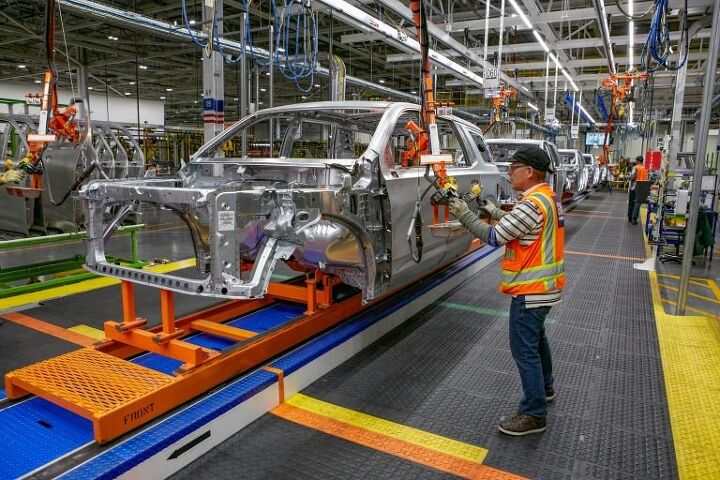



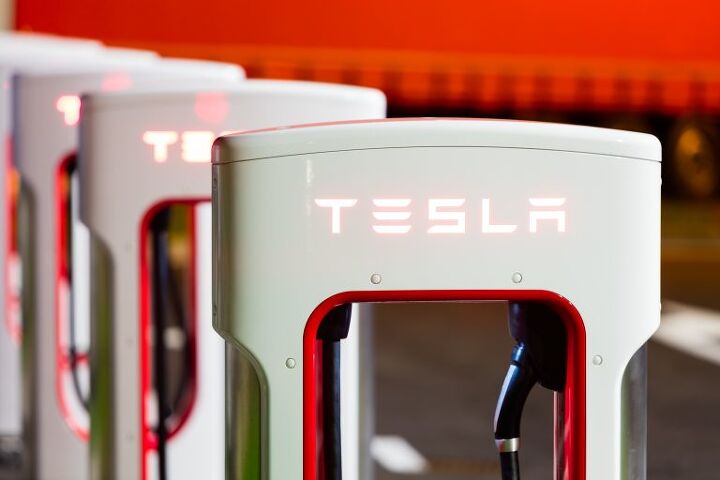

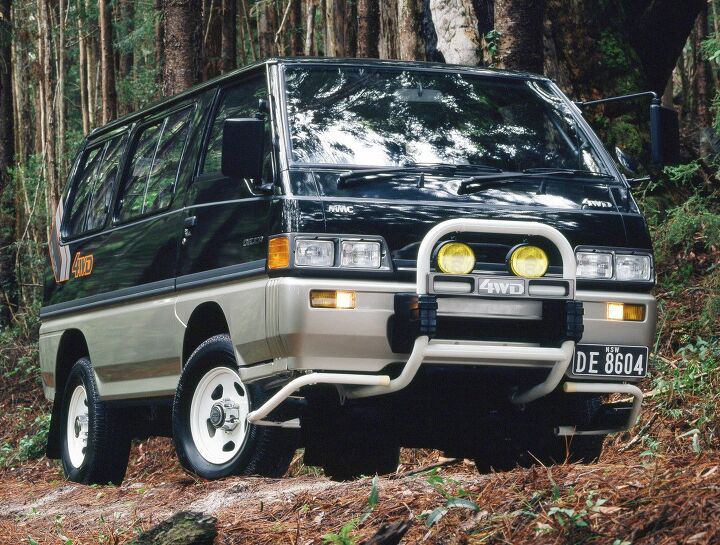
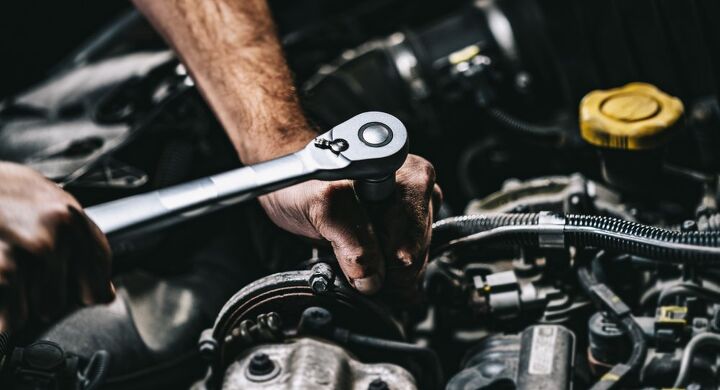
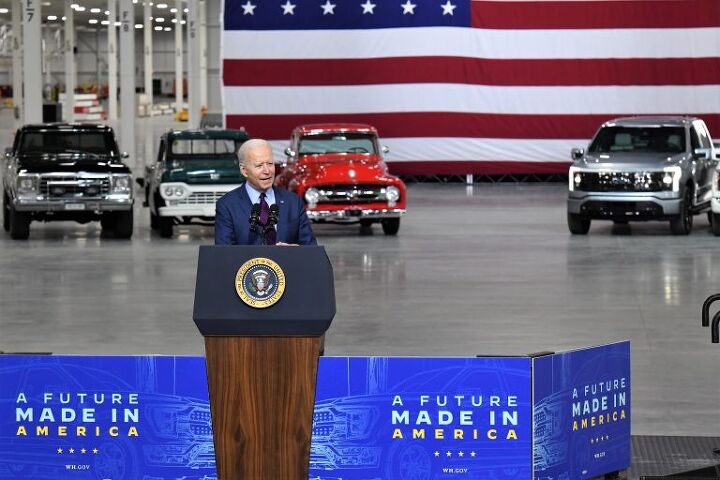















Recent Comments